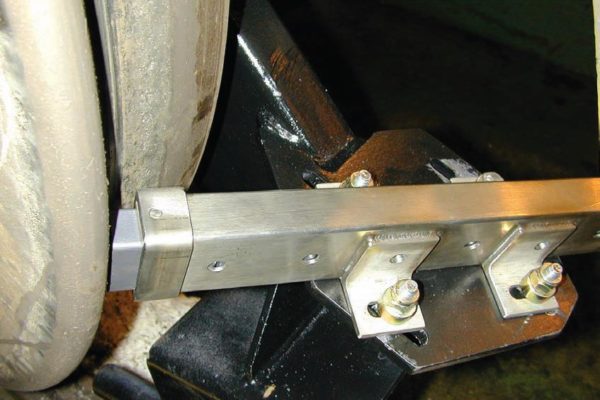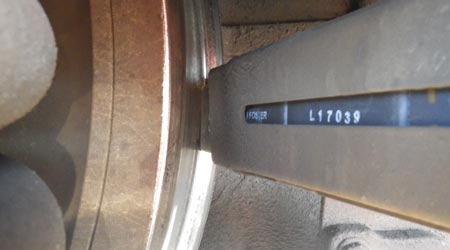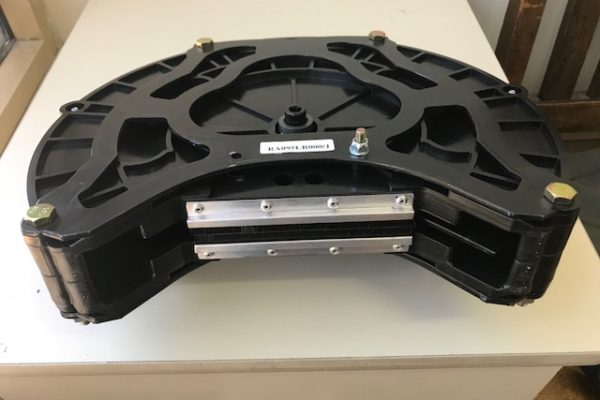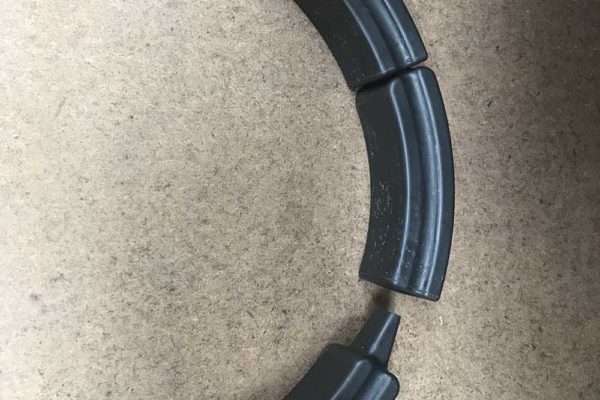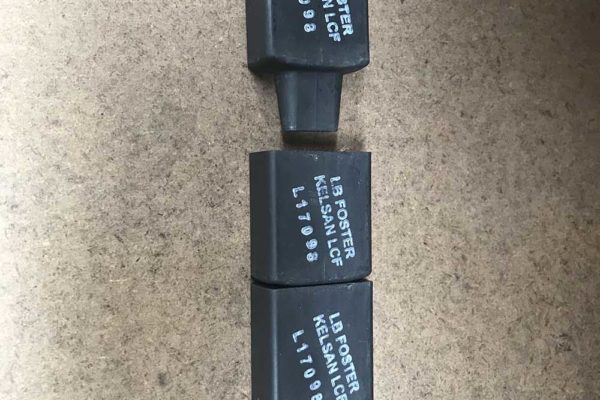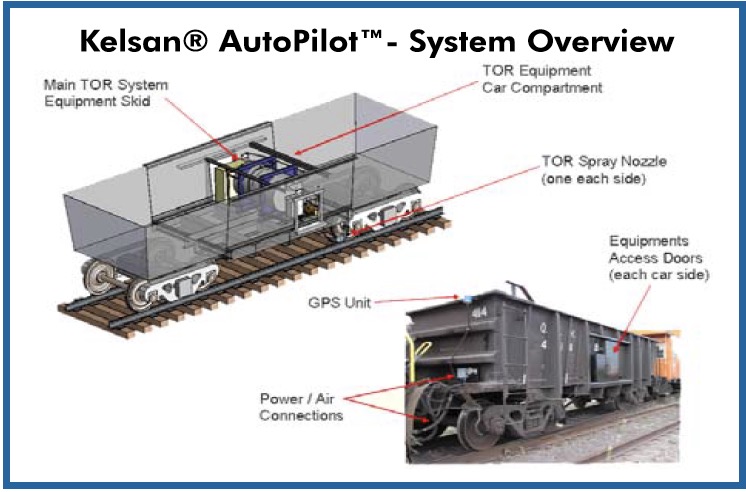On-Board Application
LCF Solid Stick Lubricant and Autopilot
Flange lubrication on the wheel/rail interface can significantly reduce flange wear, energy/fuel consumption, flanging noise, wheel profiling frequency, wheel climb derailment potential and rolling contact fatigue (RCF).
Kelsan® LCF Solid Stick Lubricants
Reduce Flange wear and provide consistent lubrication
L.B. Foster’s LCF (Low Coefficient of Friction) Solid Stick is a 100% dry, on-board lubricant specifically designed to reduce flange wear. The LCF Solid Stick provides consistent lubrication to the wheel/rail interface throughout the entire railway system and is safer, cleaner and more reliable than oil system alternatives.
Engineered to be different from traditional lubricants, the LCF Solid Stick applies lubricant directly to a portion of the wheel flanges of a rail vehicle using a spring-loaded bracket/applicator assembly custom designed to meet specific requirements. The LCF lubricant transfers to the wheel flange and gage face of the rail, leaving a thin film that provides excellent, system-wide wear protection.
LCF stick applicators are applied using either:
- Steel Applicator
- Cert III Applicator
Kelsan® LCF Solid Stick Features
LCF is a proprietary, dry solid lubricant featuring a polymeric matrix with no oil or liquid components. Uniquely suited to the high pressures of the wheel/rail interface this ThinFilm™ technology is transferred through the thermally stable polymeric matrix to the wheel flange, bonding to the wear surface. This ensures a low co efficient of friction (0.1 – 0.2). Dry solid lubricant is applied to the wheel flange without migrating to the wheel tread or railhead and with no impact upon traction or braking.
LCF Solid Sticks have several distinctive characteristics that make them the preferred choice of rail system operators. Each stick includes a patented interlocking feature to ensure continuous product application and minimal waste.
The product’s intrinsic thermosetting properties ensure no migration to the railhead and prevent the stick from melting under high temperatures. LCF is non-toxic, non-flammable and flame-resistant to meet strict environmental standards and is safe for use on subterranean railways.
| TECHNICAL SPECIFICATIONS | |
| Appearance | Black, opaque solid |
| Available Options | Interlocking and Non-Interlocking |
| Coefficient of Friction Range | < 0.15 on Metal Surfaces |
| Thermal Regulation | Does not change dimensions or melt under temperature. Decomposition begins above 250°C. |
| Fire Safety | Non-Flammable (ASTM D 4982-95) Unable to Sustain Combustion (ASTM D635-97) |
| Toxicity | Non-Toxic |
Kelsan® AutoPilot™
Top of Rail Friction Control System
Kelsan® AutoPilot™ is a top of rail friction control system that is typically installed onboard a freight car. This friction control system is designed to spray Kelsan® KELTRACK® on top of the rail throughout the entire rail system. KELTRACK® optimises the coefficient of friction on the wheel/rail interface and provides numerous benefits including fuel savings, increased rail life, increased track component life, reduced lateral forces, and reduced risk of derailments.
Kelsan® AutoPilot™ is designed to be quick and easy to install and maintain.
Features & Benefits of AutoPilot™
- Can be customised to fit any vehicle
- Fuel Savings
- Extend Rail Life
- Extend track structure life (ties, spikes etc.)
- Reduce lateral forces and the risk of derailments
- System arrives pre-assembled and easy to install
- Reduce Green House Gas (GHG) emissions
- Takes up 15% or less of freight car capacity
- GPS unit controls output of KELTRACK®
- Long refilling intervals with large capacity tank (172 gallons)
- Simple system monitoring with email notifications including supervisory trip reports and system status
- Operates at temperatures as low as -38°C or -36.4°F

We are the exclusive agents for LB Foster’s Total Friction Management solutions, which includes a wide range of proprietary systems to control friction between the wheel and rail for transit and freight rail applications.
For more than a century L.B. Foster has provided the materials necessary to build and maintain the world’s infrastructure and their friction management products and delivery systems provide substantial cost benefits by maximising equipment performance and minimizing wear at the wheel/rail interface.
Friction Management Benefits on Transit Systems
Uncontrolled friction at the wheel/rail interface on a transit system results in and contributes to a number of detriments including: curve noise, excessive wheel and rail wear, corrugations and rolling contact fatigue, wheel flats, SPADS (signal passed at danger due to lubricant on the rail head), higher fuel/energy consumption and potential safety issues like wheel climb derailment and high lateral focus.
A Friction Management system will actively extend the life of your rail asset whilst ensuring increased safety and efficiency and reduced noise.
Friction Management | LB Foster
Noise Reduction
Curve noise reduction of up to 20 dB
Extend Wheel Life
Extend wheel life by up to 20x
Grinding Intervals
Extend grinding intervals by 2x
Rail Wear Reduction
35% – 60% rail wear reduction
Lower Fuel Consumption
3% – 7% reduction in fuel consumption
Lateral Force Reduction
25% – 40% lateral force reduction reduces derailment potential

